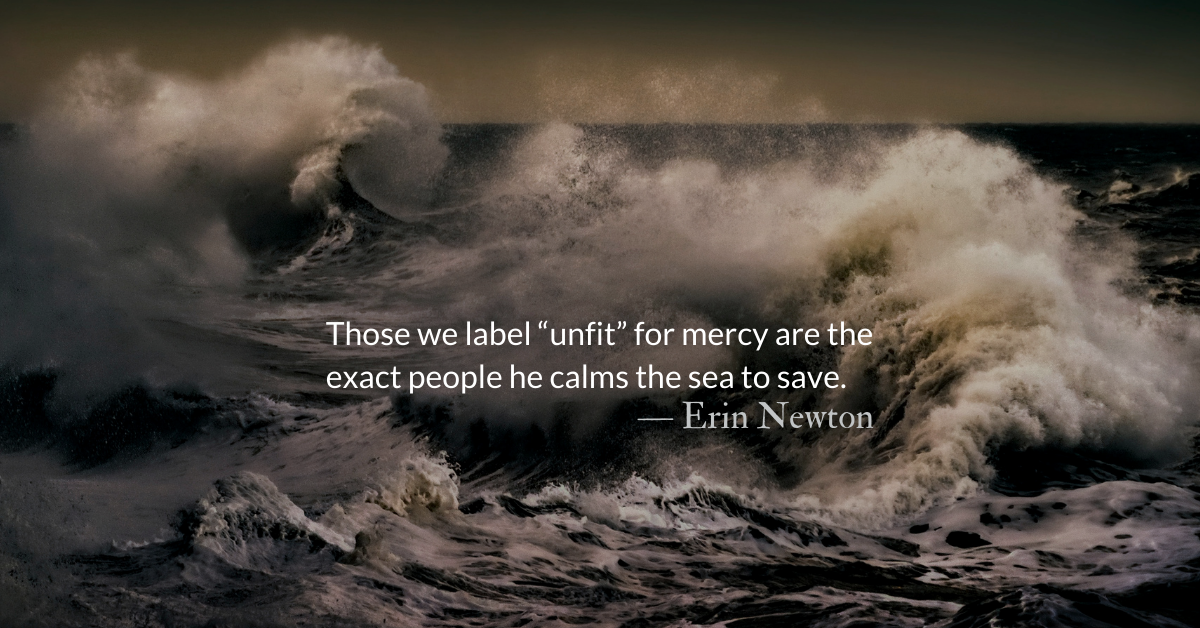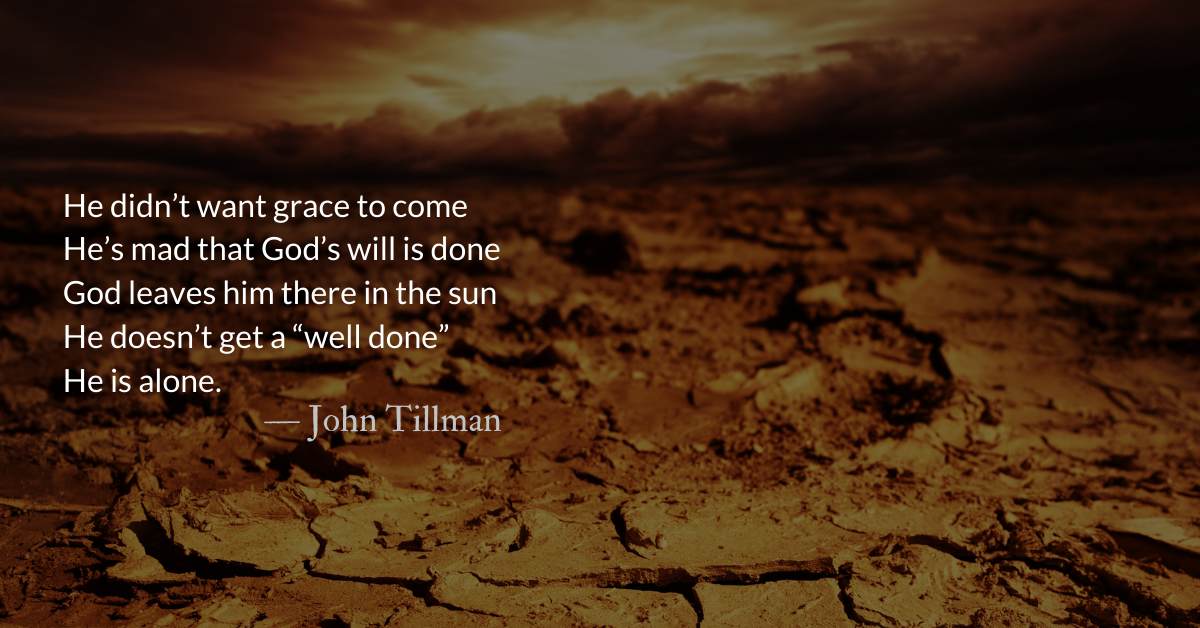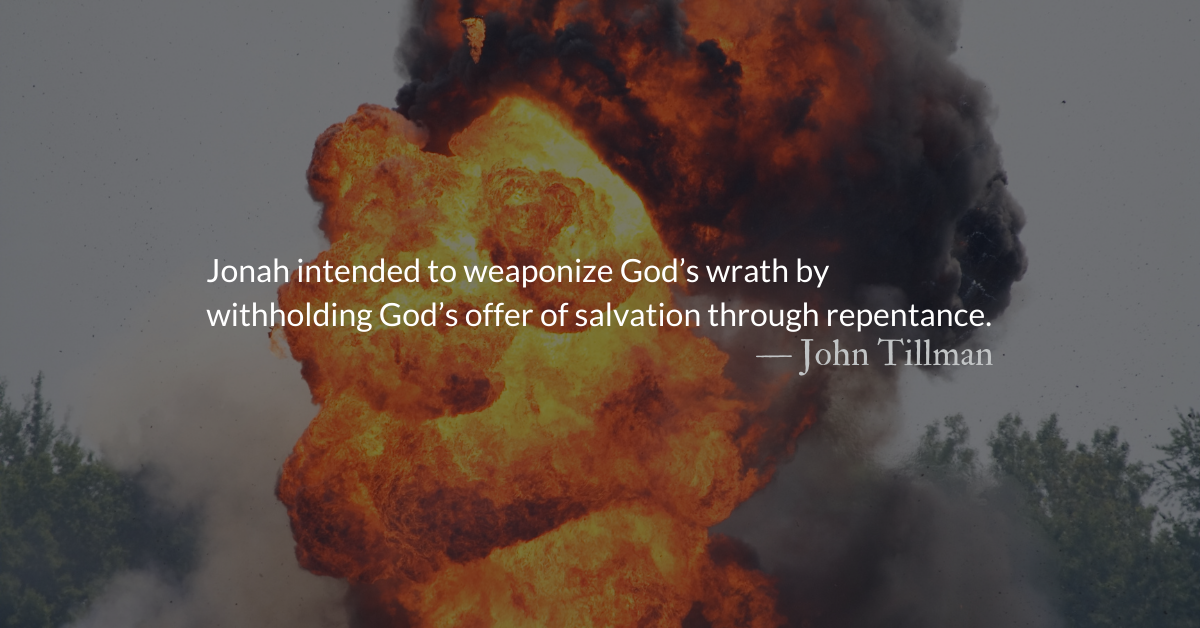Scripture Focus: Jonah 3.10
10 When God saw what they did and how they turned from their evil ways, he relented and did not bring on them the destruction he had threatened.
Jonah 4.1
1 But to Jonah this seemed very wrong, and he became angry.
Reflection: The Maddest Prophet, The Saddest Prophet
By John Tillman
Imagine a Ukrainian prophet commanded to take a message of mercy to Moscow and you might have an inkling of what Jonah felt like being told to preach to Nineveh. It’s no wonder he was angry.
In some ways, Jonah is the maddest and saddest prophet. He is madder than the most vitriolic of scripture’s prophets and sadder than even Jeremiah the weeping prophet.
Jonah doesn’t want a savior. He wants a weapon. But God won’t allow himself to be weaponized.
The Maddest, Saddest Prophet
God’s word, Jonah didn’t care for
The people he hated, therefore
He started out with a detour
Down the road to the seashore
Sailors didn’t know they were in for
Finding what God had in store
He had mercy.
In the storm, Jonah’s waking
To a mess of his making
On a flight of his taking
In a ship that was shaking
Sailors’ knees they were quaking
Very soon they’d be sinking
They were desperate.
Jonah’s crimes he confessed
Sailors reacted, distressed
To save him they do their best
Nautical skill and finesse
But couldn’t escape unless…
Jonah’s God they addressed,
“Please forgive us.”
They toss him in. Jonah’s sinking
Gulped down by a fish, stinking
Of God’s temple, he’s thinking
God’s mission he is accepting
Rebellion he is rejecting
Out of the depths, he is getting
Resurrected
He sets out upon his trek
His obedience is correct
The message he won’t neglect
But doesn’t want its effect
to blossom. He wants a wreck.
God’s love he doesn’t respect
He is bitter.
He should have railed against sin
For Nineveh’s violence to end
But he knew God might give in
If repentance were to begin
He thought mercy might kick in
He thought God’s love was a sin
He was angry
It didn’t sit right with him
Forgiveness was just for him
Not for the Assyrians
That’s why he sailed on the wind
He thought God’s purpose to bend
Hoped they would die in their sin
He was vengeful.
He hates that wrath was undone
He longed to see destruction
He didn’t want grace to come
He’s mad that God’s will is done
God leaves him there in the sun
He doesn’t get a “well done”
He is alone.
May we promote repentance
Rather than long for vengeance
May we be love and joy-filled
Not revengeful and rage-filled
May we reshape our preference
Increasing love and acceptance.
For the gospel
Divine Hours Prayer: The Call to Prayer
Sing to the Lord a new song; sing to the Lord, all the whole earth. — Psalm 96.1
Today’s Readings
Jonah 3 (Listen – 1:31)
John 15 (Listen – 3:20)
This Weekend’s Readings
Jonah 4 (Listen – 1:56), John 16 (Listen – 4:14)
Micah 1 (Listen – 2:46), John 17 (Listen – 3:40)
Read more about Abandon Human Vengeance
Vengeance breeds hatred, and hatred fuels vengeance. This pattern is not new, but it is accelerating.
Read more about When God Has Mercy…Will We?
Do we desire mercy for ourselves but not our enemies?…our leaders, our tribe, our institutions but not those who oppose us?











